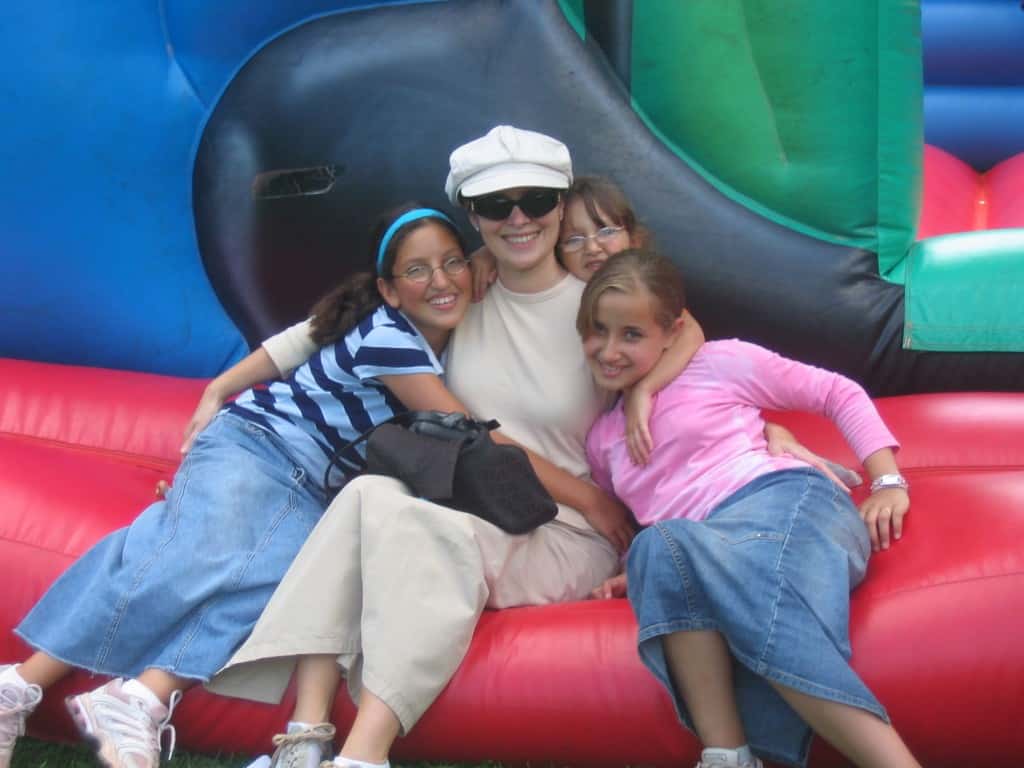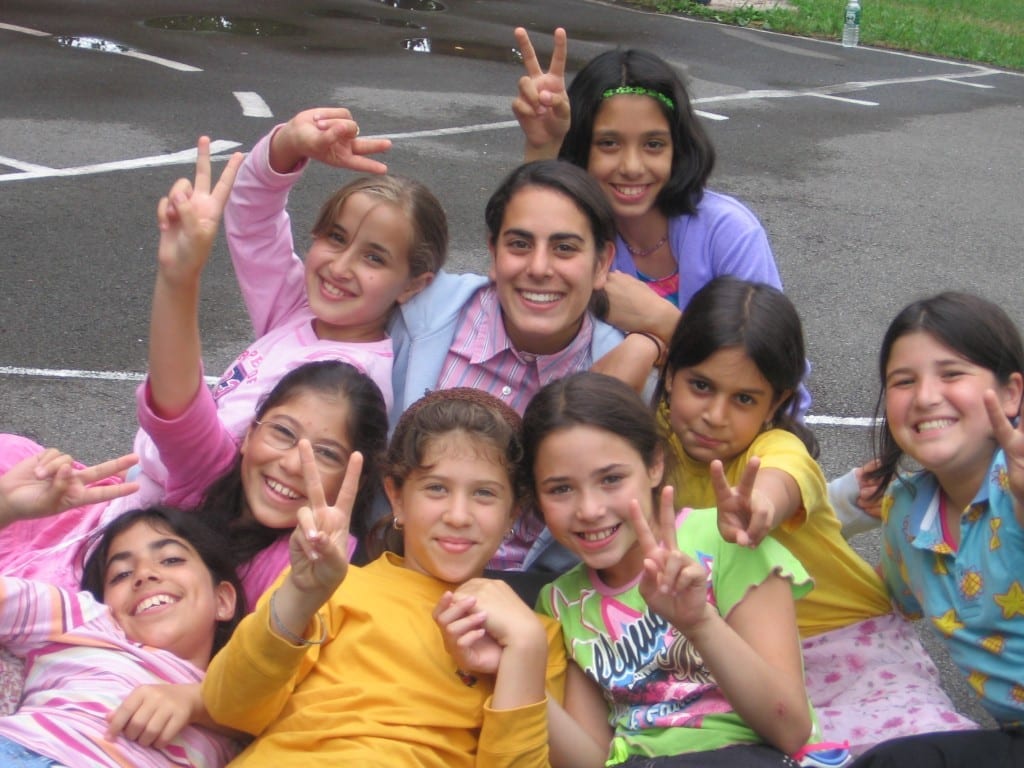
Homesickness is painful; perhaps even more so when you’re the parent of a homesick child who’s off to summer camp. The feeling of helplessness, of not knowing what to do, can be a bit overwhelming. Do you bring your child home? Force him/her to stick it out for the duration, and feel like just about the meanest parent in the world?
What Is Homesickness?
Homesickness is that sick, sad feeling in the chest and pit of the stomach, and the desperate feeling of wanting to go home, often experienced by children away from home at summer camp. The feelings of homesickness may be accompanied by fear that the other campers will see the emotions the homesick child is experiencing and seize on them as a reason for merciless teasing.

Who Gets Homesick?
Most kids in summer camp experience homesickness at some point, to one degree or another. In fact, anyone can experience homesickness when placed in unfamiliar surroundings. Adults may experience homesickness when they move to a new city, or travel for business. College students may experience homesickness after the initial excitement of being on-campus wears thin. Even experienced summer camp staff members can experience a bit of homesickness.
What Causes Homesickness?
Think of the relief you feel when you come home after a hard day at work or after being out with friends. Even if you had a productive day or a fun evening, there’s nothing quite like the feeling of coming home. Being at summer camp means not getting that feeling of relief that comes from being able to go home at the end of the day where you can kick back and relax and be yourself. It means not having the mattress you’re used to, or perhaps your favorite drinking glass. It’s natural for kids to begin to feel uncomfortable without the comforts of home, without the people at home. They begin to feel insecure, cut adrift from everything familiar, even if camp is beautiful, the counselors understanding, and the activities, a blast.

Why Risk Homesickness?
When you find out your child is homesick, it’s good to remember why you sent your child to a sleepover summer camp in the first place. If you’re like most parents, you wanted your child to have the experience of a lifetime: to have fun in beautiful, rustic surroundings, and to learn some independence, too. Despite these praiseworthy goals, some level of homesickness is bound to be experienced by your child.
In most cases however, handled correctly, these feelings of homesickness pass. If your child manages to stick it out and make the summer work, it’s a win for your child, a milestone achievement. Put plainly, staying on at camp and making it through in spite of homesickness is a good thing. It means your child is a summer camp success, because conquering homesickness is huge.

Heading Off Homesickness
Since homesickness is something that your child may very well experience at summer camp, it’s good to prepare ahead of time. Here are some steps you and your child can take to help head off those feelings of homesickness:
- Let your child help you choose the camp. If he is involved in the preparations, he will be less likely to feel homesick.
- Foster independence in your child all year round. Have him learn to take the bus to a piano lesson, do his own laundry, and practice making appointments by phone.
- If the camp isn’t too far away, try to visit the camp together, before the summer begins, so your child has a chance to see and familiarize himself with his new surroundings.
- Send your child to a camp where his best friend will be. Having a camp “buddy” makes camp feel a lot more comfortable and homey.
- Talk about what camp will be like, and how your child can expect to feel as a camper. For instance, talk about what it might feel like to wake up in a new and different place.
- Pack something that feels like home, such as a stuffed animal, or a certain pillow your child always has by his side as he sleeps.
- Purchase a notebook for your child to use as a journal at camp, in which he can write all his feelings, whenever feelings of homesickness occur.
- Practice for sleepover camp by staying over at a friend’s house for a night or a weekend.
- Send a care package or letter ahead of time, so it will arrive when your child arrives at camp. What a nice (and comforting) surprise!
- Write to your child about what you are doing while he is away, but don’t make it sound too awesome, or he’ll feel he’s missing out on something!
- Bring envelopes with home address filled in and stamps affixed, one for each day, and tell your child to mail one letter home each day. These daily letters can help serve as a bridge between home and camp, and as the pile of envelopes gets smaller, your child will realize he’s almost made it through camp, and that’s a great feeling.
- Talk about strategies your child can use to cope with homesickness, for instance, staying busy, confiding in a friend, calling home (if the camp permits this), chatting with a staff member, writing in a journal, writing a letter home, having fun!

When Homesickness Hits
If in spite of all the preparation your child is homesick, here are some things you can do:
- Talk to the camp director and try to get a good honest feel for how your child is adjusting.
- Push back against the natural desire to rescue your child by bringing him home. It’s hard to know your child is having pangs of homesickness, but getting past the feelings and making a success of camp will be an incredibly valuable experience for your child and a milestone achievement.
- Acknowledge your child’s feelings of homesickness and let him know you love him. If he is begging to come home, you can say, “Let’s talk about this again in two days, okay? If you still feel the same way, we can think about what we can do.”
- Know that most feelings of homesickness pass within a couple of days.
- Tell your child you are proud of him for trying to work things out, even if he needs a lot of help from camp staff and from you.
- Don’t indulge feelings of guilt. This is something your child has to get past in order to grow and develop.
- Talk to your child about adjusting his expectations. Maybe camp isn’t all it’s cracked up to be, but is there something or some activity at camp that he really enjoys? Encourage him to enjoy the enjoyable and to not worry too much about the rest.
- Explain that he has made a commitment and that it is important he see this through, even though it hurts.
- Remind your child of the strategies he can use to get past the feelings: write in a journal, talk to a friend or staff member, keep busy, write a letter, stay busy, have fun.
- Try not to worry. Remember that the staff is well-trained to recognize and deal with homesickness. Your child will be just fine.
- If you see that your child is making no effort at all and is not having fun, trust your instincts and let him come home. Let him know there’s always next summer to try again, and it’s not the end of the world.

5 More Homesickness Tips
Mrs. Lifsha Kleinman, camp mother at TheZone, offers the following practical homesickness tips:
- It is best for parents and kids not to communicate in the first week of camp. The kids need time to adjust.
- If kids do cry to their parents, the parents should sympathize, but encourage their kids to get involved in activities and allow themselves to be distracted.
- Tell kids (older ones and younger ones) that it is NORMAL to feel homesick. Kids will especially feel homesick during down times, like rest hour and/or nighttime.
- Parents should understand that kids might cry on the phone and 5 minutes later, they are running and having fun and are distracted. The parents, on the other hand, can’t sleep at night. They should always feel free to talk to someone in camp to see if their child continues to remain unhappy.
- Sometimes humor can help get a child to relax.
“Bottom line, most kids will adjust if they are given time and have the proper attitude. Yet there are a few that just can’t make it in camp,” says Mrs. Kleinman. “If I see a kid crying and crying all day, I would call his or her parent. In all my years as a camp mother, I can only remember two kids who could not stop crying and really needed to go home.”
Homesickness isn’t fun, but it’s certainly one of the challenges that come with the summer camp experience. Making it through camp in spite of homesickness turns your child into a champion. Let him know you’re proud of him (or her) for getting through to the other side!
